
Ingram Cecil Connor III, known professionally as Gram Parsons, was an American singer, songwriter, guitarist, and pianist. He recorded as a solo artist and with the International Submarine Band, the Byrds, and the Flying Burrito Brothers, popularizing what he called "Cosmic American Music", a hybrid of country, rhythm and blues, soul, folk, and rock.
Country rock is a music genre that fuses rock and country. It was developed by rock musicians who began to record country-flavored records in the late 1960s and early 1970s. These musicians recorded rock records using country themes, vocal styles, and additional instrumentation, most characteristically pedal steel guitars. Country rock began with artists like Buffalo Springfield, Michael Nesmith, Bob Dylan, Nitty Gritty Dirt Band, the Byrds, the Flying Burrito Brothers, The International Submarine Band and others, reaching its greatest popularity in the 1970s with artists such as Emmylou Harris, the Eagles, New Riders of the Purple Sage, Linda Ronstadt, Little Feat, Poco, Charlie Daniels Band, and Pure Prairie League. Country rock also influenced artists in other genres, including The Band, the Grateful Dead, Creedence Clearwater Revival, The Rolling Stones, and George Harrison's solo work, as well as playing a part in the development of Southern rock.
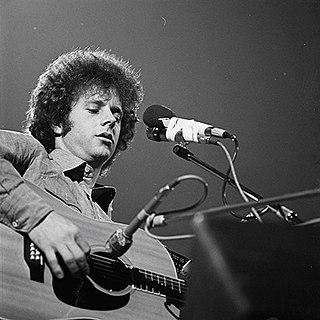
Christopher Hillman is an American musician. He was the original bassist of the Byrds.
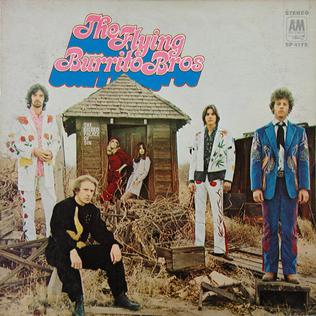
The Gilded Palace of Sin is the first album by the country rock group the Flying Burrito Brothers, released on February 6, 1969. It continued Gram Parsons' and Chris Hillman's work in modern country music, fusing traditional sources like folk and country with other forms of popular music like gospel, soul, and psychedelic rock.

I Robot is the second studio album by British rock band the Alan Parsons Project, released on 8 July 1977 by Arista Records. The album draws conceptually on author Isaac Asimov's science fiction Robot stories, exploring philosophical themes regarding artificial intelligence. It was re-released on vinyl and cassette tape in 1984 and on CD in 2017.
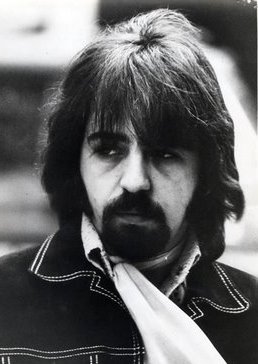
Clarence White was an American bluegrass and country guitarist and singer. He is best known as a member of the bluegrass ensemble the Kentucky Colonels and the rock band the Byrds, as well as for being a pioneer of the musical genre of country rock during the late 1960s. White also worked extensively as a session musician, appearing on recordings by the Everly Brothers, Joe Cocker, Ricky Nelson, Pat Boone, the Monkees, Randy Newman, Gene Clark, Linda Ronstadt, Arlo Guthrie, and Jackson Browne among others.

Fred Neil was an American folk singer-songwriter active in the 1960s and early 1970s. He did not achieve commercial success as a performer and is mainly known through other people's recordings of his material – particularly "Everybody's Talkin'", which became a hit for Harry Nilsson after it was used in the film Midnight Cowboy in 1969. Though highly regarded by contemporary folk singers, he was reluctant to tour and spent much of the last 30 years of his life assisting with the preservation of dolphins.The late singer/songwriter Jimmy Buffett referenced Fred Neil in his song Colour Of The Sun on Jimmy's Songs From St. Somewhere album.

Dr. Byrds & Mr. Hyde is the seventh studio album by the American rock band the Byrds and was released in March 1969 on Columbia Records. The album was produced by Bob Johnston and saw the band juxtaposing country rock material with psychedelic rock, giving the album a stylistic split-personality that was alluded to in its title. It was the first album to feature the new band line-up of Clarence White (guitar), Gene Parsons (drums), John York (bass), and founding member Roger McGuinn (guitar). Dr. Byrds & Mr. Hyde is unique within the band's discography for being the only album on which McGuinn sings the lead vocal on every track.

Farther Along is the eleventh album by the American rock band the Byrds and was released in November 1971 on Columbia Records. For the most part, the album was recorded and produced by the Byrds themselves in London, England, over the course of five work-intensive days in July 1971. It was quickly released as a reaction to the commercial failure of the Byrds' previous album, Byrdmaniax, and as an attempt to stem the criticism that album was receiving in the music press.

The Byrds is a four-CD box set by the American rock band the Byrds. It features music that had previously been released between the mid-1960s and early 1970s, along with a number of previously unreleased tracks and some new recordings from 1990. The box set was issued on October 19, 1990, by Columbia/Legacy and reached number 151 on the Billboard albums chart.

Live at the Fillmore — February 1969 is a live album released by the American rock band the Byrds in 2000 on Columbia/Legacy. Compiled from two performances at the Fillmore West on February 7 and 8, 1969, the album includes several songs that are not found on any of the group's studio albums.
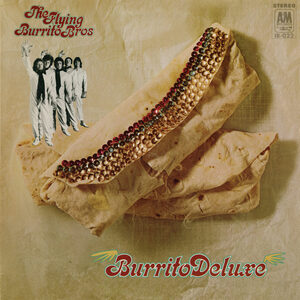
Burrito Deluxe is the second album by the country rock group the Flying Burrito Brothers, released in May 1970 on A&M Records, catalogue 4258. It is the last to feature Gram Parsons prior to his dismissal from the group. It contains the first issued version of the Mick Jagger/Keith Richards-written song "Wild Horses," released almost a year before the Rolling Stones' own take on it appeared on Sticky Fingers.

GP is American singer-songwriter Gram Parsons' debut solo album, and the only one released during his lifetime. It was originally released in a gatefold sleeve in 1973. GP received critical acclaim upon release, but failed to reach the Billboard charts. In the original Rolling Stone review, which individually covered both GP and its follow-up, Grievous Angel, the reviewer praises Parsons' vocals and delivery paraphrasing Gram's lyrics, "boy, but he sure can sing".
The International Submarine Band (ISB) was a country-rock band formed by Gram Parsons in 1965, while a theology (?) student at Harvard University and John Nuese, a guitar player for local rock group, The Trolls. Nuese is credited with having persuaded Parsons to pursue the country-rock sound for which he would later be remembered. Parsons' work with the band predates his better known ventures with The Byrds, the Flying Burrito Brothers, and the Fallen Angels with Emmylou Harris.
"Sweet Virginia" is a song written by Mick Jagger and Keith Richards, and was the sixth song on the Rolling Stones' 1972 double album Exile on Main St. The song is a slow country-inspired composition with a saxophone solo.

Live 1973 is a live album by Gram Parsons and the Fallen Angels. It was recorded at Ultra Sonic Recording Studios in Hempstead, New York on March 13, 1973 during a live radio broadcast from WLIR-FM, a station located in Garden City, New York. The album was recorded in between Parsons' only two solo studio albums, GP and Grievous Angel, though it was not officially released until 1982, long after Parsons' 1973 death at age 26.
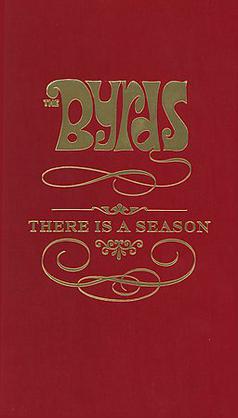
There Is a Season is a four-CD and one DVD box set by the American rock band the Byrds that was released on September 26, 2006 by Columbia/Legacy. It comprises 99 tracks and includes material from every one of the band's twelve studio albums, presented in roughly chronological order. The bonus DVD features ten clips of the Byrds lip-synching their hits on television programs between 1965 and 1967. Upon release, the box set failed to reach the Billboard 200 chart or the UK Albums Chart. There Is a Season supplants the band's earlier box set, The Byrds, which was released in October 1990.

Gram Parsons Archives Vol.1: Live at the Avalon Ballroom 1969 is a live album by the country rock band the Flying Burrito Brothers. It was recorded on April 4 and 6, 1969, at the Avalon Ballroom in San Francisco. It was released by Amoeba Records as a two-disc CD on November 6, 2007. Comprising 27 tracks, the album includes several songs not previously released by the band, such as "She Once Lived Here" and "You Win Again".
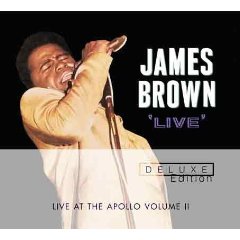
Live at the Apollo, Volume II is a 1968 live double album by James Brown and The Famous Flames, recorded in 1967 at the Apollo Theater in Harlem. It is a follow-up to Brown's 1963 recording, Live at the Apollo. It is best known for the long medley of "Let Yourself Go", "There Was a Time", and "I Feel All Right", followed by "Cold Sweat", which document the emergence of Brown's funk style. It peaked at #32 on the Billboard albums chart. Robert Christgau included the album in his "basic record library" for the 1950s and 1960s.
"That Old Wheel" is a song written by Jennifer Pierce and recorded by Johnny Cash together with Hank Williams Jr. for Cash's Jack Clement–produced 1988 album Water from the Wells of Home.
















